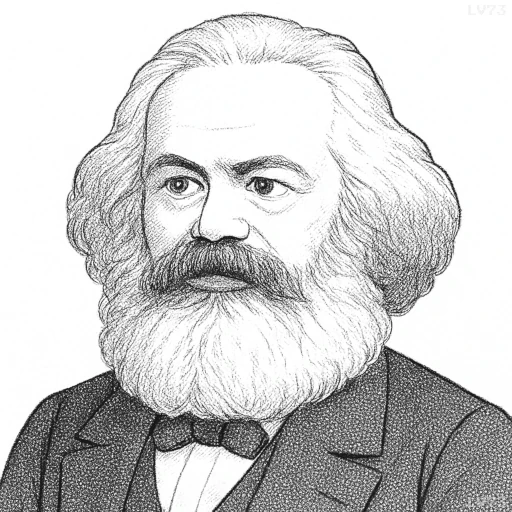“Art is always and everywhere the secret confession, and at the same time the immortal movement of its time.”

- May 5, 1818 – March 14, 1883
- Born in the Kingdom of Prussia (Germany)
- Philosopher, economist, political thinker
table of contents
Quote
“Art is always and everywhere the secret confession, and at the same time the immortal movement of its time.”
Explanation
In this quote, Marx reflects on the role of art as both a reflection of society and a vehicle for social change. He suggests that art acts as a “secret confession”, in the sense that it reveals the underlying emotions, contradictions, and struggles of the time in which it is created. Artists may not always explicitly state the socio-political conditions of their era, but their work often expresses these struggles in symbolic or emotional ways. Art, then, serves as an indirect but powerful commentary on the social realities and conflicts that shape its creation.
At the same time, Marx argues that art is also the “immortal movement of its time”—meaning that it not only reflects society but also embodies the dynamic forces and changes that are taking place within it. Art can inspire social transformation by giving voice to the marginalized, challenging the status quo, and pushing society toward revolutionary change. In this sense, art is not simply passive; it is an active force that moves society forward, even as it captures the essence of its historical moment. Art, therefore, becomes both a mirror and a catalyst for social progress, encapsulating the spirit of the time while also pushing it toward greater consciousness and transformation.
Historically, Marx viewed art as being deeply connected to the material conditions of life, especially the class struggle. For example, the works of revolutionary artists or proletarian writers reflect the conflicts and aspirations of the working class. In the 19th century, artists like Goya, Delacroix, and Géricault captured the emotional essence of revolution and human suffering, while socialist realism in the 20th century aimed to inspire the masses toward social change. In modern times, art continues to be a powerful medium for critique and protest, with contemporary artists using visual art, film, music, and literature to comment on issues such as social inequality, climate change, and political corruption. Marx’s quote reminds us that art is not just a passive reflection of its time but a vital force for change that can expose social injustices and inspire revolutionary thought.
Would you like to share your impressions or related stories about this quote in the comments section?


